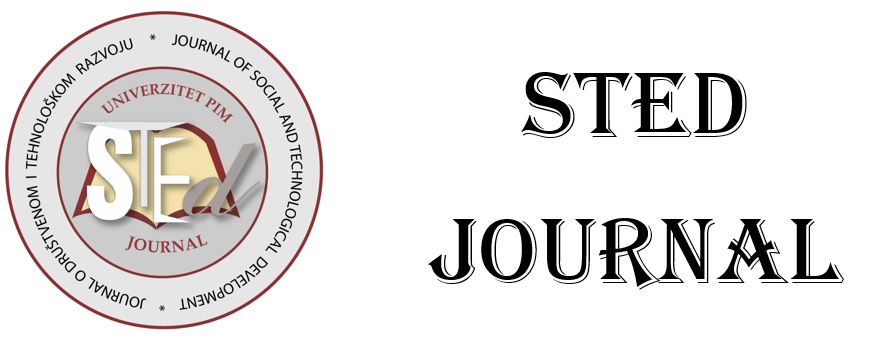
More articles from Volume 1, Issue 2, 2019
THE EFFECTS OF MODIFIED CLAY ON CONTROLLED DRUG RELEASE SYSTEMS
POLYMERIC SCAFFOLDS FOR TISSUE ENGINEERING APPLICATIONS
POLYMER CONCRETE MIXTURES – APPLICATION IN ENGINEERING INDUSTRY
INTERCONNECTION OF MATERIALS SCIENCE, 3D PRINTING AND MATHEMATIC IN INTERDISCIPLINARY EDUCATION
THE INNOVATIVE APPROACH TO INTELLIGENT HELPDESK SYSTEMS DEVELOPMENT
Article views
CONDITIONS FOR EFFECTIVE INTERVENTION OF OMBUDSMEN IN ANTI-DISCRIMINATION COURT PROCEEDINGS
Institution of Human Rights Ombudsmen of Bosnia and Herzegovina , Banja Luka , Bosnia and Herzegovina
Received: 03.11.2019.
Accepted: 22.11.2019. >>
Published: 29.11.2019.
Volume 1, Issue 2 (2019)
pp. 76-87;
Abstract
It is beyond any doubt that victims of human rights violations are rarely in position to initiate court proceedings fighting systematic discrimination themselves, which makes the role of human rights institutions indispensable. This specific mandate gives rise to numerous questions, such as: to what extent state institution takes the role of the legal representative, what capacities should it possess, on what basis it selects the cases meriting court intervention, is court intervention equally suitable in all areas of human rights protection and which analyzed model from Europe or wider has proved to be the most effective? Article offers analysis of court interventions in federal states with complex government structure and multiple institutions mandated with human rights protection, be it Ombudsmen Institution or Equality Body, court interventions in states with single human rights institution, comparative practice present in various European states, as well as interventions of human rights bodies before European tribunals. Author outlines the legal framework, human resources, and administrative structure that need to be provided, so that court interventions would have the desired effect and generate positive changes. In this process, it is of paramount importance to respect existing legal traditions and intrinsic practices, which proved their practical applicability over time, while any attempt to use legal transplants, with a goal of hastily unification of national legal orders and imposing transnational jurisdiction, can only produce confusion and countereffects.
Keywords
References
Citation
Copyright
All papers are licensed under a Creative Commons Attribution 4.0 International License.
Article metrics
The statements, opinions and data contained in the journal are solely those of the individual authors and contributors and not of the publisher and the editor(s). We stay neutral with regard to jurisdictional claims in published maps and institutional affiliations.











